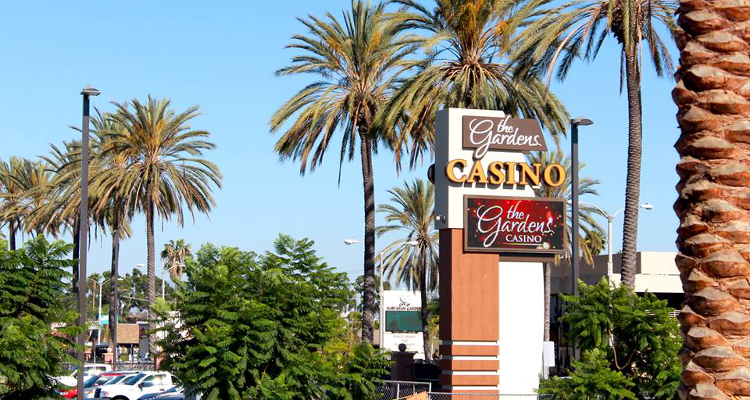In southern California, The Gardens Casino is reportedly in jeopardy of losing its gambling license following accusations from state officials that it had failed to comply with federal anti-money laundering laws.
According to a report from the Press-Telegram newspaper, the allegations against the casino located in the small Los Angeles suburb of Hawaiian Gardens and its Chief Executive Officer, David Moskowitz, came as part of an October 17 report from the California Bureau Of Gambling Control with the issue now set to be put before an administrative law judge.
The newspaper reported that The Gardens Casino had previously admitted to deficiencies in its ability to obey federal anti-money laundering laws while Eric Petosky from the California Gambling Control Commission explained that the venue will be able to remain open under a provisional license until November 30.
“In view of that nondisclosure and admitted violations of federal and state laws, [the] respondent’s continued licensure undermines the public trust that licensed gambling does not endanger the public health, safety and welfare,” read the report from the California Bureau Of Gambling Control.
The Gardens Casino has nearly completed a three-year and $90 million renovation project that included the construction of an entirely new building and is reportedly a major employer and source of revenues for the government of Hawaiian Gardens.
The Financial Crimes Enforcement Network (FinCEN), which is part of the United States Department Of The Treasury, reportedly issued a $2.8 million fine against The Gardens Casino in July following an examination by the Internal Revenue Service and admissions by staff that they had failed to abide by some provisions of the Bank Secrecy Act. Federal authorities declared that these shortcomings had made the Los Angeles County venue “susceptible to money laundering and terrorist financing activity” and it was moreover required to provide a risk assessment report to the government and hire an external auditor.
The Press-Telegram explained that the Bank Secrecy Act is a 1970 law that requires businesses to keep records that enable law enforcement officials investigating money laundering to track illegal transactions. As an example, one provision calls for enterprises to report single or related cash transactions whenever $10,000 changes hands.
FinCEN reportedly found that The Gardens Casino had violated the Bank Secrecy Act from September of 2009 through to July of last year by not implementing controls needed to follow the federal law despite a 2011 examination by the Internal Revenue Service and a consultant’s review two years later that brought additional problems to light. These delinquencies were said to have included a failure to keep track of exactly who was involved in cash transactions at the venue with a woman known simply as “Michelle” referred to in 15 suspicious activity accounts and five currency transaction reports without her actual identity being known.
The newspaper reported that FinCEN had found that 80% of suspicious activity reports filed at The Gardens Casino between the start of 2013 and mid-September of 2014 had referred to at least one unknown subject being involved in transactions. What’s more, the regulator highlighted some 347 cash transactions involving unidentified parties between October 1, 2013 and the end of that year had been for amounts of between $9,000 and $10,000, which it observed were just short of the level triggering mandatory reporting.
California governor Jerry Brown visited The Gardens Casino in December of 2013 to help the business celebrate the start of its renovation project, which has reportedly involved the construction of a large kitchen alongside a new VIP area and gaming space large enough to accommodate up to 7,000 players.


